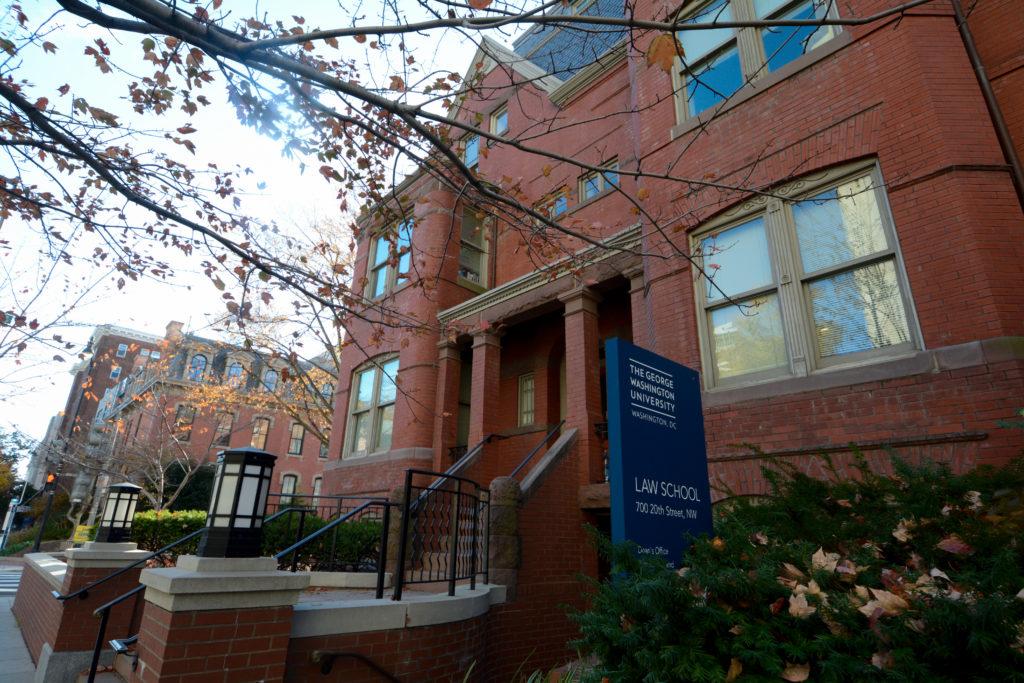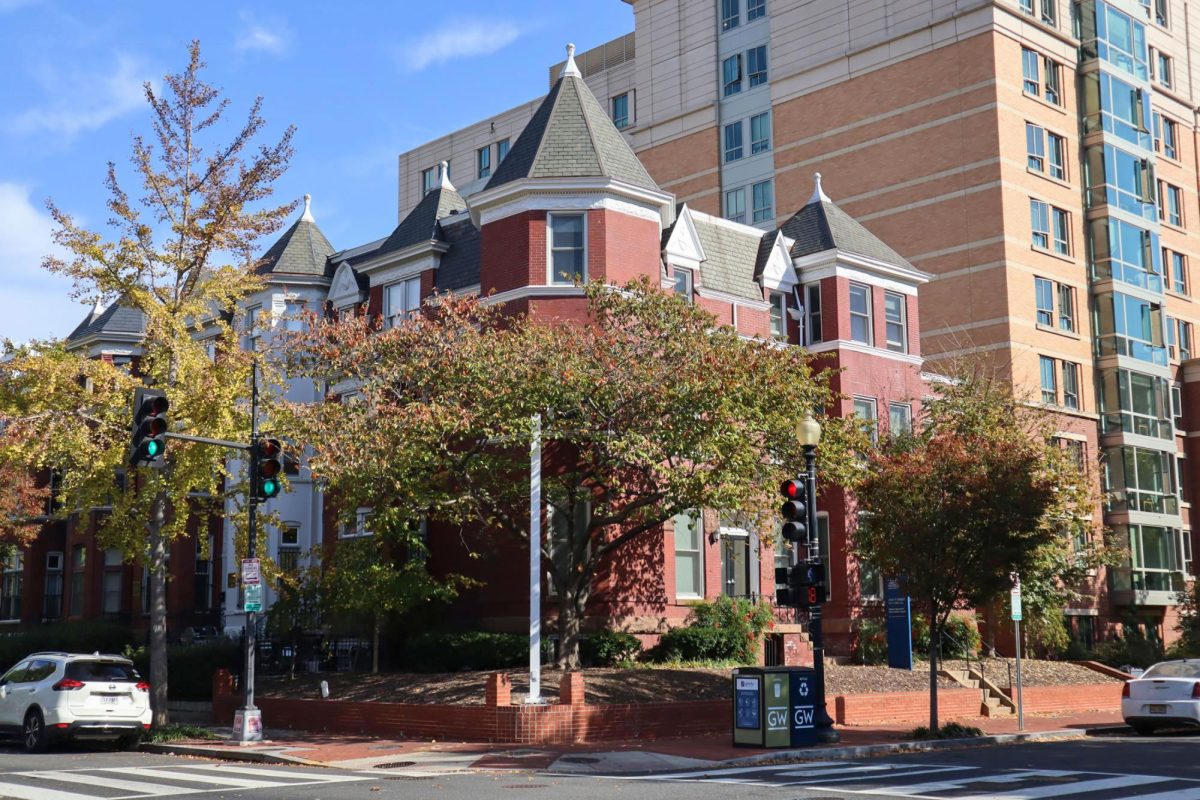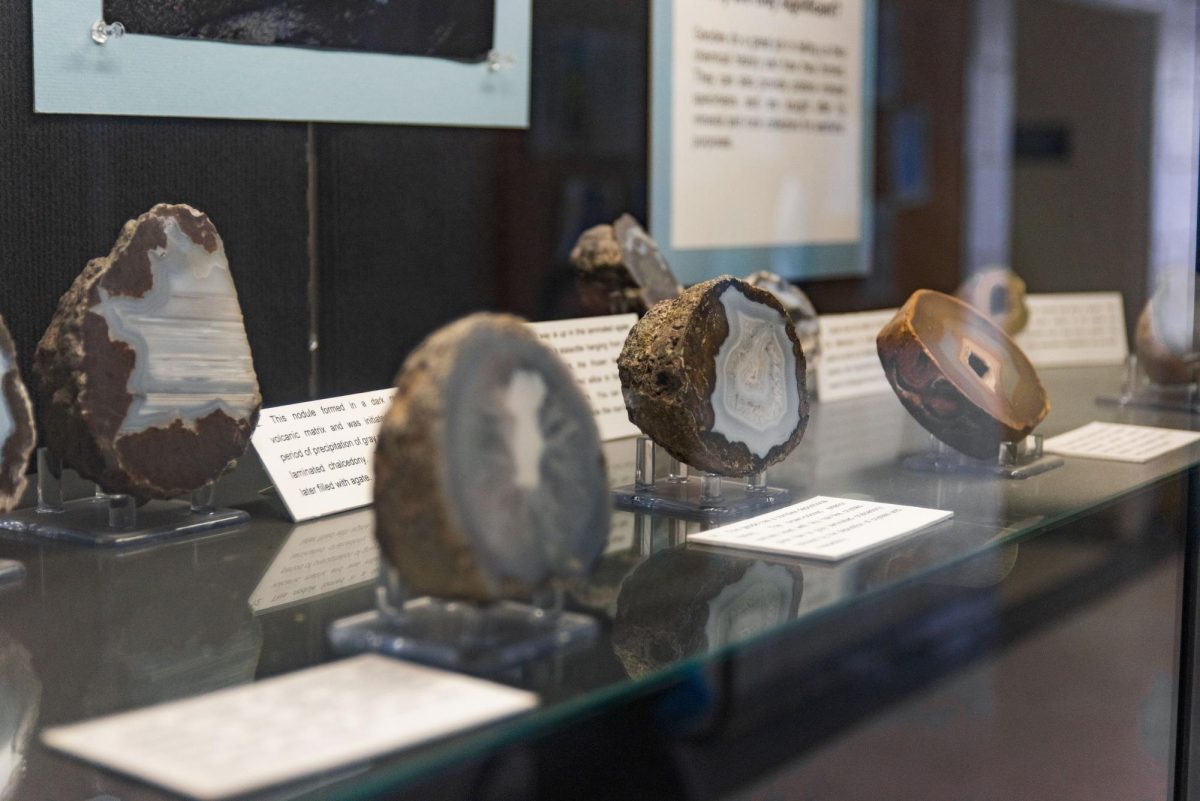Updated: Nov. 16, 2020 at 2:27 p.m.
GW Law Dean Dayna Bowen Matthew launched a podcast late last month to discuss issues facing the country surrounding the November 2020 election.
Matthew discussed topics like voting rights, police reform and the Supreme Court via Zoom with GW Law professors on the podcast, named “Testimony.” She said on the podcast, which currently has seven published episodes on SoundCloud each at about 30 minutes in length, that GW has some of the “best experts in the country” who study these issues, and she hopes the podcast will help educate people on social and legal issues.
She said seeing the impact of the work of law faculty in the “real world” during her first few weeks as dean inspired her to start the podcast.
“Not everyone is lucky enough to spend a semester in the classroom with our stellar professors,” Matthew said in an email. “The podcast offers insight into incredibly important and complex legal issues by top-notch experts.”
She said the first seven episodes of the podcast consist of interviews with law school faculty about “timely issues” and the impact of these issues on the 2020 election. Now that the election is over, she will focus on issues like health, climate change, criminal justice and the priorities of the next presidential administration, she said.
“The series has received a lot of positive feedback, and although the presidential election is over, I plan to keep the podcast going so that our faculty experts can continue to share valuable knowledge with the public,” Matthew said.
She said going forward, the podcast will be built on the pillars of impact, featuring faculty members whose work is “impactful and important,” and influence, focusing on faculty work in congressional hearings and discussing how their research impacts the law.
Kate Weisburd, an associate professor of law, said she “welcomed the chance” to talk on Matthew’s podcast because she has not been able to interact with her colleagues as often as she would during an in-person semester.
“We are so apart right now, everyone is sort of hungry for the opportunity to find points of connection and finds ways of being connected together, so I think having this podcast is a nice way of using connectivity between us right now,” she said.
On Weisburd’s episode from late October, she discussed topics like police reform, criminal law and grand juries along with Roger Fairfax, a research professor of law. She said the protests against police brutality this summer have created a need for people to think about the role that the criminal justice system plays in furthering issues of police violence and racism and how the system can be used to address those issues.
“There is a need for us to think about the criminal justice system, the criminal legal system, the ways in which it is furthering problems and the ways in which it can be used to address questions of inequity and injustice,” Weisburd said.
Jonathan Siegel, a research professor of law, appeared on an episode in late October called “Explaining the Administrative State” with law professor Richard Pierce to discuss why administrative law matters to the work of the government and its relevance surrounding recent Supreme Court appointments.
He said administrative law may sound like an “obscure” topic but is “important” because the federal government needs to go through a government agency to implement new regulations through organizations like the Environmental Protection Agency and to file taxes through the Internal Revenue Service.
Siegel said he was “happy” to talk about his area of expertise in administrative law and its relevance in the election when Matthew asked him to be on the podcast.
“I think people would enjoy it and learn something, and it would be good for people to hear,” Siegel said.
Siegel said he discussed with Pierce and Matthew how recent appointments to the Supreme Court, like that of Justice Amy Coney Barrett, have signaled that the court will make “big changes” about the law of government agencies in the future, like the president’s ability to fire heads of government agencies.
“You might say ‘government agencies, who cares?’” Siegel said. “It’s that this is how the federal government exercises its power and every aspect of how that operates can affect everyone in the country.”
Robert Glicksman, a professor of environmental law, said he discussed on his episode published prior to Election Day how issues of environmental regulation would be different if President Donald Trump or now-President-elect Joe Biden were elected in the 2020 presidential election.
He said the podcast would be “eye-opening” to a variety of listeners, like undergraduates and law professionals in other fields, to learn about the approaches different administrations might take to environmental regulation.
Glicksman said the law school is the “appropriate” place to discuss these issues since D.C. is at the center of governmental policy.
“The series is a terrific way of exposing people to the important work that members of our faculty are doing,” Glicksman said.
This post has been updated to include the following:
This story has been updated to include a comment from Matthew.








